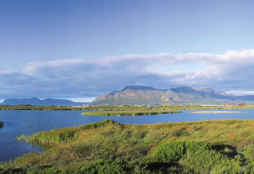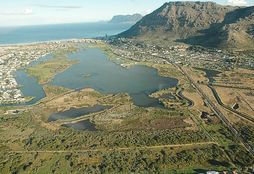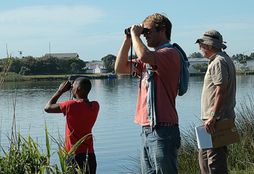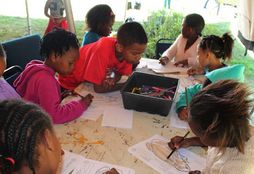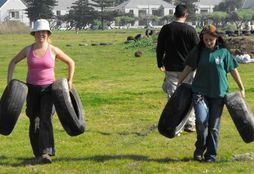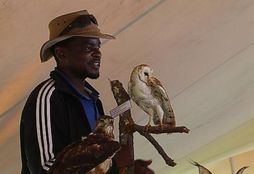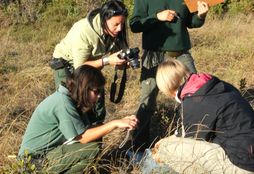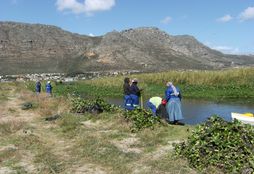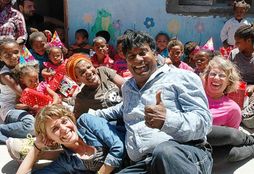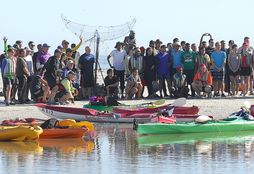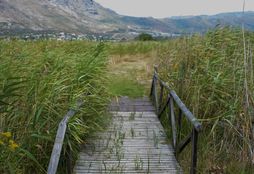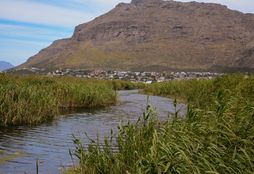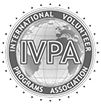Highlights
- Volunteer at a reserve close to Cape Town.
- Help to capture, relocate or rehabilitate birds and animals.
- Experience working with local schools.
- Experience amazing tours and adventures in and around Cape Town.
- Receive personal support from the volunteer coordinator.
- Make new friends from all over the world.
Project information
Activities vary widely and include both, conservation and educational work for and with children.
The education programme is large, with presentations reaching far over 1000 children (most from underprivileged backgrounds), so the project is particularly well placed to accommodate volunteers who are interested in education as well.
The reserve is not isolated and is part of a city-wide network of reserves and natural areas that are physically connected by corridors where possible. Management of an estuary also implies involvement in issues in the catchment area and on the coast. The work is therefore not only restricted to the Cape Nature Conservation project and frequently includes other reserves or sites.
The work at the reserve is fairly evenly split between community work and ground work aimed at improving ecological functioning (which includes working with plants and animals).
Your role
You will work from Monday to Friday.
The daily activities are highly varied and may include:
- Bio-monitoring and research.
- Ecological management and rehabilitation.
- Visitor management.
- Construction and infrastructure maintenance.
- Environmental education.
- Education programme – presentations to children.
No single activity is guaranteed, as all activities vary seasonally and by chance, and many are only undertaken quarterly or annually.
Other possible activities that you might be asked to do include:
- Helping to capture, relocate or rehabilitate animals (including birds, fish, small mammals, reptiles, antelope, grysbok, eland, hippo, etc.),
- Controlling erosion; engaging in botanical rehabilitation,
- Pollinating certain rare plant species by hand,
- Removal of invasive alien species,
- Counting birds, animals and plants,
- Assisting with administration,
- Assisting with structured environmental education programs and community involvement,
- Assisting with environmental emergencies like oil spills, fish kills, fires (in a support/logistics capacity, unless adequately trained and equipped),
- Mowing and path maintenance,
- Cleaning up litter, and a host of other ad hoc tasks.
You can expect to walk fair distances or have to paddle by canoe or boat to your work site within the reserve for the day.
It is important to note that this description serves as an example only. The daily tasks and challenges depend on the volunteer, the time of year and the work that needs to be done. The final job description can therefore vary substantially from the above.
Accommodation
You will live at the Volunteer House. It is a private house in an upmarket residential area with single beds and twin bedrooms. Volunteers are accommodated in twin bedrooms but may upgrade to single rooms upon request. There are 4 bathrooms to share, a communal kitchen, a dining room, a lounge with TV and DVD player and a beautiful garden with a swimming pool.
Bedding is provided. Towels are not provided.
There is a washing machine at the residence for you to use. It works with tokens which can be purchased for R40 per load.
Please note: The Volunteer House is currently closed for renovations and will be available again from early 2026.
In the meanwhile, volunteers can book the Newlands Residence at no extra cost. This residence is located in the heart of Claremont and offers single rooms with an en-suite bathroom. Bedding and towels are provided and replaced weekly. A communal kitchen, a wellness area with a mini gym, a pool and communal areas guarantee a welcoming atmosphere and plenty of opportunities to meet fellow volunteers. Wi-Fi is included.
A laundry room with washing machines and tumble dryers is available at the cost of R43 per load.
Upgrades to a Homestay or any other accommodation option provided by Good Hope Studies are always possible but come at an additional cost.
Meals
Self-catering except if you choose the Homestay option. The main shopping areas as well as restaurants, pubs, etc. are within walking distance of your accommodation.

